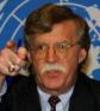Bulk the Army or Review the Policy: The Defense Dilemma
Posted by Gordon Adams
The Quadrennial Defense Review appears today, the fourth since the Bottom Up Review of 1993. Newspaper columns are going to be filled with discussions of “irregular” conflicts and “catastrophic” threats, and the “long war” Secretary Rumsfeld announced this week at the National Press Club. The underlying debate, though, is going to focus on the Army – is it overstretched and near the breaking point, or is it a “Goldilocks” force – just right for what it is being asked to do. The answer to this question, however, is not “how much should we add to the Army,” but what is the Army for.
From the narrow point of view, there is no doubt the Army is overstretched. Maintaining 160,000 troops in Iraq, plus another roughly 30,000 at sea or in neighboring Kuwait, preparing a next wave of forces to go there, and resetting the forces that came home not only costs a lot (see that $70 b. Iraq supplemental coming this month) but goes well beyond the algorithm the Army likes to use for deploying its forces. Minimally, the Army likes three units for every rotation: one in the field, one getting ready to go, and one coming back to rest, retrain and reequip. In Iraq, it is more like one coming back and one going out, period. Can’t do that without calling up the reserves, so we have done that, with more than 600,000 men and women now on active duty in the Army.
Continue reading "Bulk the Army or Review the Policy: The Defense Dilemma" »












 In case you're feeling that Bob Woodruff and Doug Vogt's injuries in Iraq are receiving too much media attention, go read
In case you're feeling that Bob Woodruff and Doug Vogt's injuries in Iraq are receiving too much media attention, go read 